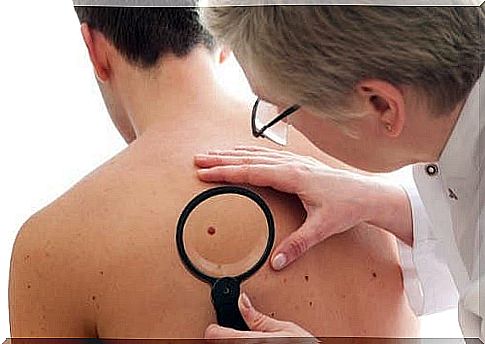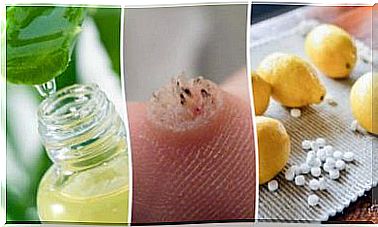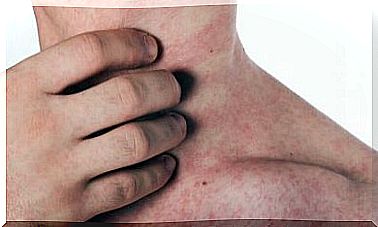Preventing Skin Cancer: 6 Tips

Preventing skin cancers is of paramount importance. Risk factors can be a very fair complexion or family cases of the condition. Cases of skin cancer are more and more frequent, which is why all the necessary precautionary measures must be taken.
In this article, we share some tips for preventing skin cancers . It is necessary to become aware of this serious disease and to know the risk factors, so as to apply the most appropriate preventive measures.
Tips for preventing skin cancers
1. Sunscreen

Sunscreen is meant to protect the skin from solar radiation. Its application allows us to create a barrier against ultraviolet rays. For this reason, several public health bodies have promoted its use in recent decades.
However, cases of skin cancer in its most severe form continue to increase. In addition to applying sunscreen, therefore, additional preventive measures must be taken.
2. Lotions with antioxidants
A study published by Duke University Medical Center suggests that sunscreens do not offer sufficient protection to the skin. They argue that this is due to improper use, an inadequate protection factor or their possible toxicity.
To counter these problems, they propose the topical application of some antioxidants in parallel with the use of sunscreens. They claim that their effectiveness is documented and that they increase the skin’s protection from cancer. Among them we have:
- C vitamin.
- Vitamin E.
- Selenium.
- Zinc.
- Silymarin.
- Soy isoflavones.
- Tea polyphenols.
3. Routine checks to prevent skin cancers

It is important to keep in mind that routine checks should always be carried out. The risk categories that require more preventive measures and controls have:
- Family history of skin cancers.
- Family history of melanomas.
- Excessive sun exposure.
- Skin with phototypes I or II.
- Genetic disorders with increased risk of skin cancer.
- Habitual smokers.
- Patients with HIV, HPV and polyomavirus.
4. Beware of some medications
A little known factor must also be taken into account. Some drugs increase photosensitivity, hindering the protection of the skin from cancer. Among these drugs we have:
- Tetracyclines (especially doxycycline).
- Thiazide diuretics.
- Sulfonamides.
- The fluoroquinolones.
- Non-steroidal anti-inflammatory drugs.
- Retinoids.
- St. John’s wort (Hypericum).
It is always advisable to consult your doctor if you are taking any of these medicines. If treatment cannot be changed, strict precautions should be taken with regard to sun exposure, given the increased vulnerability.
5. Oral supplements to prevent skin cancers

We’ve already talked about topical antioxidants. However, nutrition always plays a primary role in health. For this reason, we can use supplements, supported by scientific evidence, to help us protect the skin from cancer.
These supplements can be taken as a complement, but not as an exclusive measure for protection from the harmful effects of the sun. They should be understood as part of these preventive advice.
We also recommend that you always consult your doctor before taking these products. Below are the most effective supplements in these cases, as well as the foods richest in these nutrients:
- Vitamin A : liver, carrots, spinach, dairy products, pumpkin, eggs.
- Selenium : Brazil nuts, tuna, oysters, sesame, eggs.
- Vitamin C : oranges, guava, citrus fruits, strawberries, kiwis.
- Essential fatty acids : oily fish, linseed oil, evening primrose oil, avocado.
- Vitamin E : olive oil, sunflower seeds, almonds, pine nuts, Brazil nuts, apricots, spinach, quinoa, oysters.
- Resveratrol : grape juice or wine, peanuts, dark chocolate, blueberries.
6. Further precautions
Finally, it should be noted that sun exposure is not the only risk factor for skin cancer. Even the tanning beds and exposure to chemicals in certain places or occupations may involve a high risk.
It will therefore be necessary to take all necessary precautions. Outdoors, you will need to wear the most appropriate clothing to protect your skin, as well as wearing sunglasses and applying sunscreen.
We also reiterate the importance of abandoning harmful habits such as smoking and following a complete and balanced diet. Without forgetting the routine checks when necessary.









